★★★
“Social justice vs. warrior.”
 I should probably start by providing some background the film omits – likely because the intended Indian audience were well aware of it. In 2012, a notorious gang-rape took place in Delhi, the victim subsequently dying. Of the six attackers, four were sentenced to death and one committed suicide in prison – but the sixth, being a juvenile, could only receive a maximum sentence of three years. This loophole appalled many, including two journalists depicted in this film, Jyothi (Nivedhitha) and Divya (Karagada), who begin a campaign to revise the law.
I should probably start by providing some background the film omits – likely because the intended Indian audience were well aware of it. In 2012, a notorious gang-rape took place in Delhi, the victim subsequently dying. Of the six attackers, four were sentenced to death and one committed suicide in prison – but the sixth, being a juvenile, could only receive a maximum sentence of three years. This loophole appalled many, including two journalists depicted in this film, Jyothi (Nivedhitha) and Divya (Karagada), who begin a campaign to revise the law.
At the same time, American photographer Karlyn Smith (Spartano) returns to India, with a very different but even more personal mission: taking revenge on the men who raped her. This is a highly-risky job, beginning when her attempt to buy a gun turns into a mugging. Matters aren’t helped when another attempted robbery leads to her attacker’s death, and a subsequent police investigation by Rakesh Patil (Purushotham). Nevertheless, she persists, tracking down and eliminating the gang responsible like a female Charles Bronson; initially, one by one, then finding the remainder as they crash a house party.
It really feels like two different movies edited together. You have Jyothi and Divya, touring the country putting on little stage plays, offering an interpretive dance version of gang-rape in a bid to raise awareness. Then there’s Karlyn, opting for a considerably more direct form of protest: shooting rapists. The threads only overlap at the end, in an extended coda where Karlyn may or may not have drowned. It’s all rather confusing, and the film’s insistence on jiggling the time-line for dramatic effect is also more irritating than enlightening. For instance, it opens with an off-camera shooting, that turns out – for no good reason – to be the second robbery attempt on our vengeful heroine.
The good news is Spartano – who has almost no previous feature work to her name – does an excellent job with her part of the film, and it’s that which held my interest. Interesting decision by the makers, to create and cast an American character for this role, rather than using an Indian actress. [The director know the actress from his time at the New York Film Academy, and also brought on board an American music director and cinematographer] Yet it still manages to weave in to its narrative strands from Indian mythology: the title is an alternate name for the goddess Durga, the Hindu warrior goddess. Wikipedia tells me her “mythology centres around combating evils and demonic forces that threaten peace, prosperity and dharma of the good. She is the fierce form of the protective mother goddess, willing to unleash her anger against wrong, violence for liberation and destruction to empower creation.”
Hard to argue with that: at one point, Karlyn says, “When you get used to it – killing – it’s as easy as breathing.” And there’s one particularly memorable shot at the party where Karlyn just stalks past an opening, and it suddenly feels like a wildlife documentary about tigers hunting. Just a shame they film didn’t go full-bore into this aspect, rather than diluting it with Jyothi and Divya’s ineffectual social campaigning.
Dir: Adarsh Eshwarappa
Star: Lauren Spartano, Nivedhitha, Amrutha Karagada, Shashank Purushotham





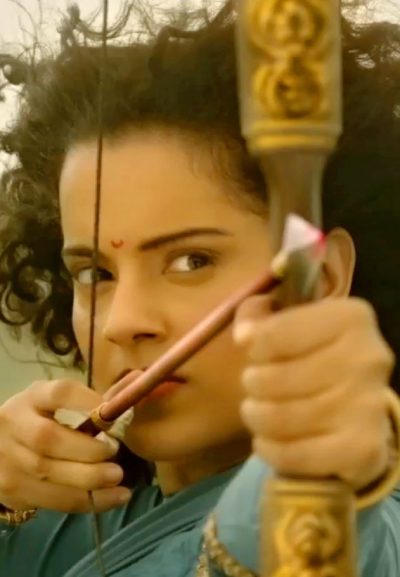 The movie opens with a particularly elaborate disclaimer, admitting that “certain cinematic liberties have been sought,” and that “this film does not claim historical authenticity.” Probably wise: Indians take their national heroes very seriously; just last year, another historical epic, Padmaavat,
The movie opens with a particularly elaborate disclaimer, admitting that “certain cinematic liberties have been sought,” and that “this film does not claim historical authenticity.” Probably wise: Indians take their national heroes very seriously; just last year, another historical epic, Padmaavat, 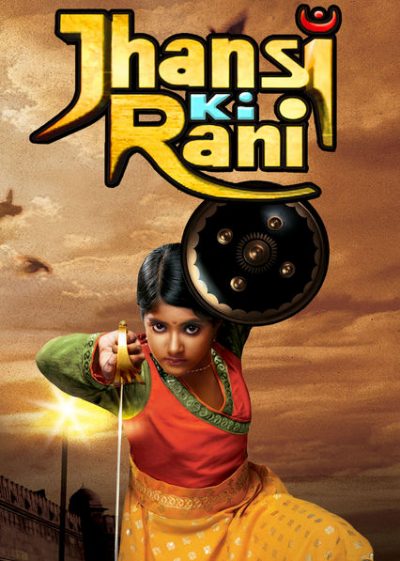 Not for the show, I should stress. But as a Brit… Wow, were were really such utter bastards to the Indians when the country was a colony? I was under the impression it was all tea and cricket. But the British, as depicted here, appear largely to be working entirely for the East Indian company, treating the local population with, at best, disdain, and often brutality. All the while, seeking to manipulate local politics (with, it must be said, the help of some Indians) to their own advantage. After 70 episodes of this, such is the guilt, I can barely enjoy my chicken tikka masala without giving it reparations.
Not for the show, I should stress. But as a Brit… Wow, were were really such utter bastards to the Indians when the country was a colony? I was under the impression it was all tea and cricket. But the British, as depicted here, appear largely to be working entirely for the East Indian company, treating the local population with, at best, disdain, and often brutality. All the while, seeking to manipulate local politics (with, it must be said, the help of some Indians) to their own advantage. After 70 episodes of this, such is the guilt, I can barely enjoy my chicken tikka masala without giving it reparations.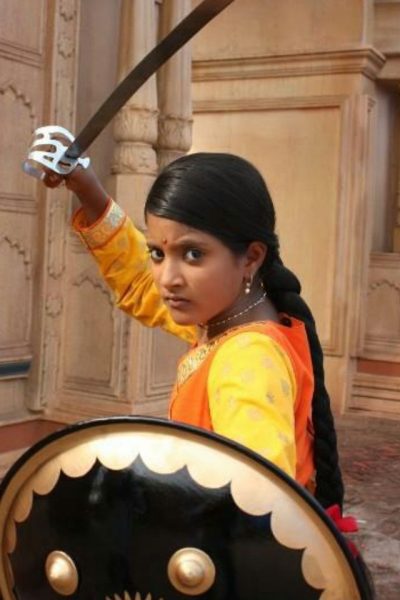 The British – already unhappy with Manu’s rebellious outbursts – are far from happy at the prospect of her marrying Gangadhar and continuing the line. Even before she arrives at the palace, there are backroom conspiracies involving some of his relatives (not least his own mother), who ally themselves with the colonialists for their mutual benefit. These schemes go up to and include multiple assassination plots against the king, and indeed, his bride-to-be. Time for Kranti Guru to come out again, particularly to face off against gold-toothed British psychopath Marshall (Verma). His relentless pursuit, without regard for who gets hurt, earns him Manu’s undying enmity. [Weirdly, he’s played by an Indian actor in “white face”, as are some – but not all – of the other English officers, some of whom are dubbed.]
The British – already unhappy with Manu’s rebellious outbursts – are far from happy at the prospect of her marrying Gangadhar and continuing the line. Even before she arrives at the palace, there are backroom conspiracies involving some of his relatives (not least his own mother), who ally themselves with the colonialists for their mutual benefit. These schemes go up to and include multiple assassination plots against the king, and indeed, his bride-to-be. Time for Kranti Guru to come out again, particularly to face off against gold-toothed British psychopath Marshall (Verma). His relentless pursuit, without regard for who gets hurt, earns him Manu’s undying enmity. [Weirdly, he’s played by an Indian actor in “white face”, as are some – but not all – of the other English officers, some of whom are dubbed.]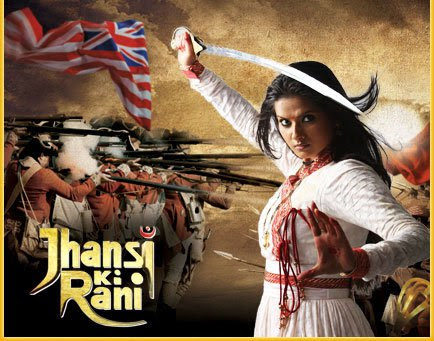 For the great majority of the time, it’s light stuff, with Manu escaping every pitfall her enemies set for her. Then, the hammer drops: to extend the GoT comparison, it’s the Rani equivalent of the Red Wedding. Fewer bodies, to be sure – just one – yet the resulting emotional wallop was still brutal, sending me through multiple stages of grief during the subsequent fall-out. “No… Surely they haven’t… It’s got to be a dream sequence.” All told, it was easily the most impactful death in any of the telenovelas I’ve watched, regardless of their origin, and the repercussions ran on for multiple episodes. As do the reaction shots. So. Many. Reaction. Shots.
For the great majority of the time, it’s light stuff, with Manu escaping every pitfall her enemies set for her. Then, the hammer drops: to extend the GoT comparison, it’s the Rani equivalent of the Red Wedding. Fewer bodies, to be sure – just one – yet the resulting emotional wallop was still brutal, sending me through multiple stages of grief during the subsequent fall-out. “No… Surely they haven’t… It’s got to be a dream sequence.” All told, it was easily the most impactful death in any of the telenovelas I’ve watched, regardless of their origin, and the repercussions ran on for multiple episodes. As do the reaction shots. So. Many. Reaction. Shots.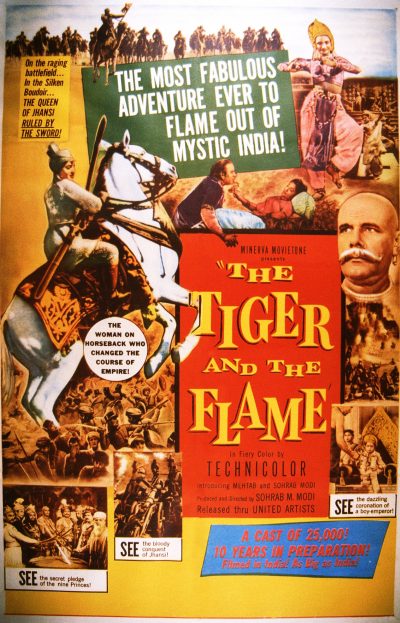
 Officer Shivani Shivaji Roy (Mukerji) is part of the Serious Crimes Squad in Delhi, whose approach to policing is very much “by any means necessary.” However, she is taken out of her area of expertise when Pyaari. a young girl she has been helping goes missing from an orphanage. Everything indicates the girl has been picked up by a sex trafficking ring, run by Sunny Katyal (Verma) and his partner, Karan (Bhasin), and will soon be sold off to the highest bidder and exported out of the country. Roy has to work her way up the chain to rescue Pyaari, despite opposition both from her boss, because it’s not her responsibility, and from the gang. As she gets nearer to the top, the climb becomes increasingly hard, with the criminals making it clear they won’t take lightly the threat to their lucrative business which Roy represents. It’s also clear they have friends in high places.
Officer Shivani Shivaji Roy (Mukerji) is part of the Serious Crimes Squad in Delhi, whose approach to policing is very much “by any means necessary.” However, she is taken out of her area of expertise when Pyaari. a young girl she has been helping goes missing from an orphanage. Everything indicates the girl has been picked up by a sex trafficking ring, run by Sunny Katyal (Verma) and his partner, Karan (Bhasin), and will soon be sold off to the highest bidder and exported out of the country. Roy has to work her way up the chain to rescue Pyaari, despite opposition both from her boss, because it’s not her responsibility, and from the gang. As she gets nearer to the top, the climb becomes increasingly hard, with the criminals making it clear they won’t take lightly the threat to their lucrative business which Roy represents. It’s also clear they have friends in high places.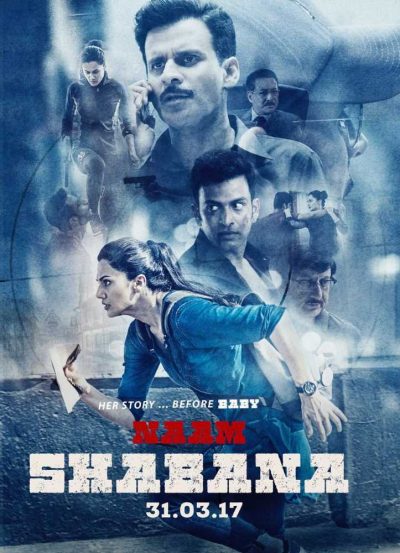 If you took four different films, by four different directors, and edited them together into a single entity, you might end up something similar to this. Oh, make no mistake: I still enjoyed most of this. It just doesn’t feel like a coherent whole, perhaps because it is a spin-off involving some of the same characters from an earlier film, Baby. For at least three-quarters of it, however, not having seen its predecessor shouldn’t be too much of a problem.
If you took four different films, by four different directors, and edited them together into a single entity, you might end up something similar to this. Oh, make no mistake: I still enjoyed most of this. It just doesn’t feel like a coherent whole, perhaps because it is a spin-off involving some of the same characters from an earlier film, Baby. For at least three-quarters of it, however, not having seen its predecessor shouldn’t be too much of a problem.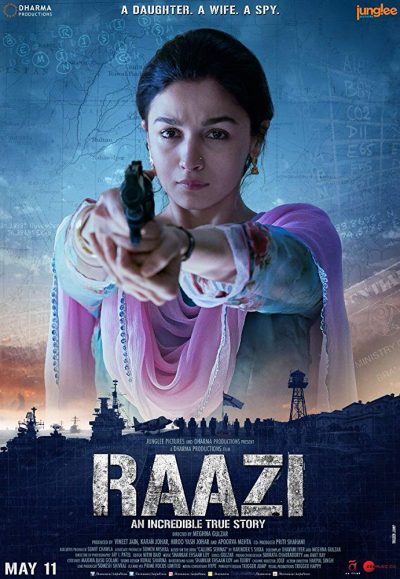
 This Indian spy thriller manages to be both remarkably restrained and human, avoiding a potentially jingoistic approach, and going for something considerably more measured. It takes place just before the war between India and Pakistan in 1971, when Indian agent Hidayat Khan is pretending to give information to Pakistan. In order to get close to their top brass, he convinces his daughter, Sehmat (Bhatt), to enter an arranged marriage to Iqbal Syed (Ahlawat), an officer whose father (Sharma) is a Brigadier in the Pakistani army. After being trained by senior intelligence officer Khalid Mir (Kaushal), she goes to join her new husband, and begins operations as a spy inside the Brigadier’s household.
This Indian spy thriller manages to be both remarkably restrained and human, avoiding a potentially jingoistic approach, and going for something considerably more measured. It takes place just before the war between India and Pakistan in 1971, when Indian agent Hidayat Khan is pretending to give information to Pakistan. In order to get close to their top brass, he convinces his daughter, Sehmat (Bhatt), to enter an arranged marriage to Iqbal Syed (Ahlawat), an officer whose father (Sharma) is a Brigadier in the Pakistani army. After being trained by senior intelligence officer Khalid Mir (Kaushal), she goes to join her new husband, and begins operations as a spy inside the Brigadier’s household.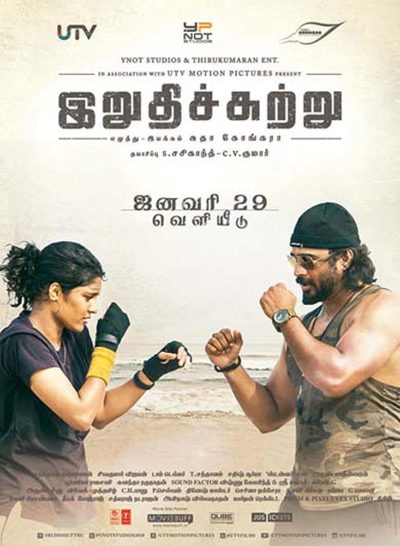 Despite thrashing virtually every sports cliché under the sun into the ground, this just about manages to skate by on the energy of its two central performances. Adi Tomar (Madhavan) is a boxing coach who gets hit with a trumped-up #MeToo charge by the head of the boxing association Dev Khatri (Hussain), and punted off to the backwoods of Chennai. There, however, he finds a raw jewel in Madhi (Singh), a fish-seller whose sister, Lakshmi (Sorcar), has been training as boxer with an eye to joining the police. But it’s Madhi’s aggression which attracts Adi’s attention, and he eventually convinces her to strap on the gloves.
Despite thrashing virtually every sports cliché under the sun into the ground, this just about manages to skate by on the energy of its two central performances. Adi Tomar (Madhavan) is a boxing coach who gets hit with a trumped-up #MeToo charge by the head of the boxing association Dev Khatri (Hussain), and punted off to the backwoods of Chennai. There, however, he finds a raw jewel in Madhi (Singh), a fish-seller whose sister, Lakshmi (Sorcar), has been training as boxer with an eye to joining the police. But it’s Madhi’s aggression which attracts Adi’s attention, and he eventually convinces her to strap on the gloves. This is a modern update of the story of Savitri and Satyavan, originally found in Indian epic saga the Mahabharata [and when I say, “epic saga”, it’s 1.8 million words long!]. The tale has been an immensely popular topic for Bollywood, Wikipedia saying there have been thirty-four different film versions, dating back over a century to 1914’s Satyavan Savitri. The basic story is of a woman, Savitri, who defies a prediction that her chosen husband, Satyavan, will die in a year, and marries him anyway. She then has to talk the god of death out of collecting him.
This is a modern update of the story of Savitri and Satyavan, originally found in Indian epic saga the Mahabharata [and when I say, “epic saga”, it’s 1.8 million words long!]. The tale has been an immensely popular topic for Bollywood, Wikipedia saying there have been thirty-four different film versions, dating back over a century to 1914’s Satyavan Savitri. The basic story is of a woman, Savitri, who defies a prediction that her chosen husband, Satyavan, will die in a year, and marries him anyway. She then has to talk the god of death out of collecting him.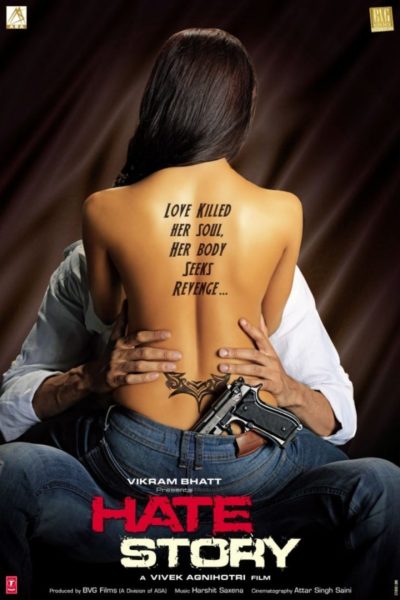 After exposing construction company Cementec as involved in corruption, journalist Kavya Krishna (Dam) is surprised to get a call from Siddharth Dhanrajgir (Devaiya), son of the company’s owner. He ends up offering her a job at far above her previous salary, and the two eventually grow into a relationship. However, it’s all a ruse: Siddharth dumps and firing Kayva, saying, “I fuck those who fuck with me.” When she tries to strike back by telling him she’s pregnant, he has her kidnapped and forced to have an abortion, which leaves Kavya permanently unable to have children. She vows to destroy Siddharth and his company, by any means necessary, using her investigative skills – and no shortage of feminine wiles – to get the information required.
After exposing construction company Cementec as involved in corruption, journalist Kavya Krishna (Dam) is surprised to get a call from Siddharth Dhanrajgir (Devaiya), son of the company’s owner. He ends up offering her a job at far above her previous salary, and the two eventually grow into a relationship. However, it’s all a ruse: Siddharth dumps and firing Kayva, saying, “I fuck those who fuck with me.” When she tries to strike back by telling him she’s pregnant, he has her kidnapped and forced to have an abortion, which leaves Kavya permanently unable to have children. She vows to destroy Siddharth and his company, by any means necessary, using her investigative skills – and no shortage of feminine wiles – to get the information required.